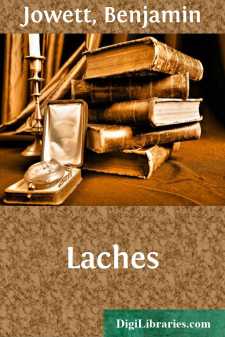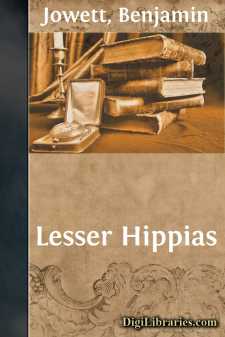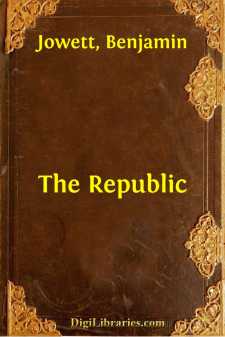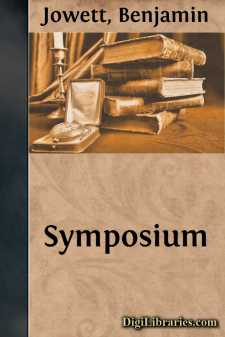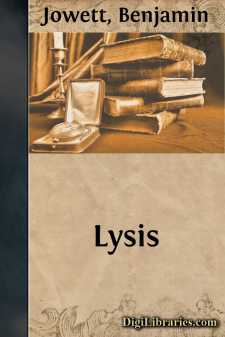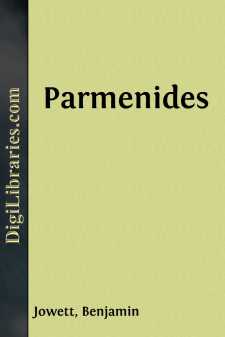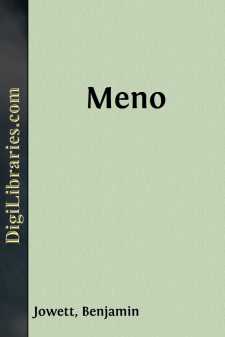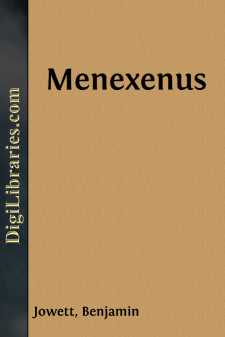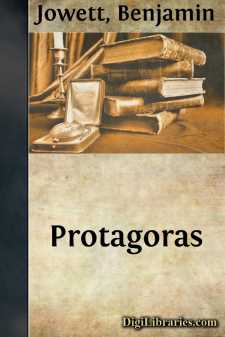Categories
- Antiques & Collectibles 13
- Architecture 36
- Art 48
- Bibles 22
- Biography & Autobiography 813
- Body, Mind & Spirit 142
- Business & Economics 28
- Children's Books 17
- Children's Fiction 14
- Computers 4
- Cooking 94
- Crafts & Hobbies 4
- Drama 346
- Education 46
- Family & Relationships 57
- Fiction 11829
- Games 19
- Gardening 17
- Health & Fitness 34
- History 1377
- House & Home 1
- Humor 147
- Juvenile Fiction 1873
- Juvenile Nonfiction 202
- Language Arts & Disciplines 88
- Law 16
- Literary Collections 686
- Literary Criticism 179
- Mathematics 13
- Medical 41
- Music 40
- Nature 179
- Non-Classifiable 1768
- Performing Arts 7
- Periodicals 1453
- Philosophy 64
- Photography 2
- Poetry 896
- Political Science 203
- Psychology 42
- Reference 154
- Religion 513
- Science 126
- Self-Help 84
- Social Science 81
- Sports & Recreation 34
- Study Aids 3
- Technology & Engineering 59
- Transportation 23
- Travel 463
- True Crime 29
Sort by:
by:
Benjamin Jowett
INTRODUCTION. The Ion is the shortest, or nearly the shortest, of all the writings which bear the name of Plato, and is not authenticated by any early external testimony. The grace and beauty of this little work supply the only, and perhaps a sufficient, proof of its genuineness. The plan is simple; the dramatic interest consists entirely in the contrast between the irony of Socrates and the...
more...
by:
Benjamin Jowett
INTRODUCTION. Lysimachus, the son of Aristides the Just, and Melesias, the son of the elder Thucydides, two aged men who live together, are desirous of educating their sons in the best manner. Their own education, as often happens with the sons of great men, has been neglected; and they are resolved that their children shall have more care taken of them, than they received themselves at the hands of...
more...
by:
Benjamin Jowett
APPENDIX I. It seems impossible to separate by any exact line the genuine writings of Plato from the spurious. The only external evidence to them which is of much value is that of Aristotle; for the Alexandrian catalogues of a century later include manifest forgeries. Even the value of the Aristotelian authority is a good deal impaired by the uncertainty concerning the date and authorship of the...
more...
by:
Benjamin Jowett
BOOK I. I went down yesterday to the Piraeus with Glaucon the son of Ariston, that I might offer up my prayers to the goddess (Bendis, the Thracian Artemis.); and also because I wanted to see in what manner they would celebrate the festival, which was a new thing. I was delighted with the procession of the inhabitants; but that of the Thracians was equally, if not more, beautiful. When we had finished...
more...
by:
Benjamin Jowett
INTRODUCTION. Of all the works of Plato the Symposium is the most perfect in form, and may be truly thought to contain more than any commentator has ever dreamed of; or, as Goethe said of one of his own writings, more than the author himself knew. For in philosophy as in prophecy glimpses of the future may often be conveyed in words which could hardly have been understood or interpreted at the time...
more...
by:
Benjamin Jowett
INTRODUCTION. No answer is given in the Lysis to the question, 'What is Friendship?' any more than in the Charmides to the question, 'What is Temperance?' There are several resemblances in the two Dialogues: the same youthfulness and sense of beauty pervades both of them; they are alike rich in the description of Greek life. The question is again raised of the relation of knowledge...
more...
by:
Benjamin Jowett
INTRODUCTION AND ANALYSIS. The awe with which Plato regarded the character of 'the great' Parmenides has extended to the dialogue which he calls by his name. None of the writings of Plato have been more copiously illustrated, both in ancient and modern times, and in none of them have the interpreters been more at variance with one another. Nor is this surprising. For the Parmenides is more...
more...
by:
Benjamin Jowett
INTRODUCTION. This Dialogue begins abruptly with a question of Meno, who asks, 'whether virtue can be taught.' Socrates replies that he does not as yet know what virtue is, and has never known anyone who did. 'Then he cannot have met Gorgias when he was at Athens.' Yes, Socrates had met him, but he has a bad memory, and has forgotten what Gorgias said. Will Meno tell him his own...
more...
by:
Benjamin Jowett
APPENDIX I. It seems impossible to separate by any exact line the genuine writings of Plato from the spurious. The only external evidence to them which is of much value is that of Aristotle; for the Alexandrian catalogues of a century later include manifest forgeries. Even the value of the Aristotelian authority is a good deal impaired by the uncertainty concerning the date and authorship of the...
more...
by:
Benjamin Jowett
INTRODUCTION. The Protagoras, like several of the Dialogues of Plato, is put into the mouth of Socrates, who describes a conversation which had taken place between himself and the great Sophist at the house of Callias—'the man who had spent more upon the Sophists than all the rest of the world'—and in which the learned Hippias and the grammarian Prodicus had also shared, as well as...
more...



